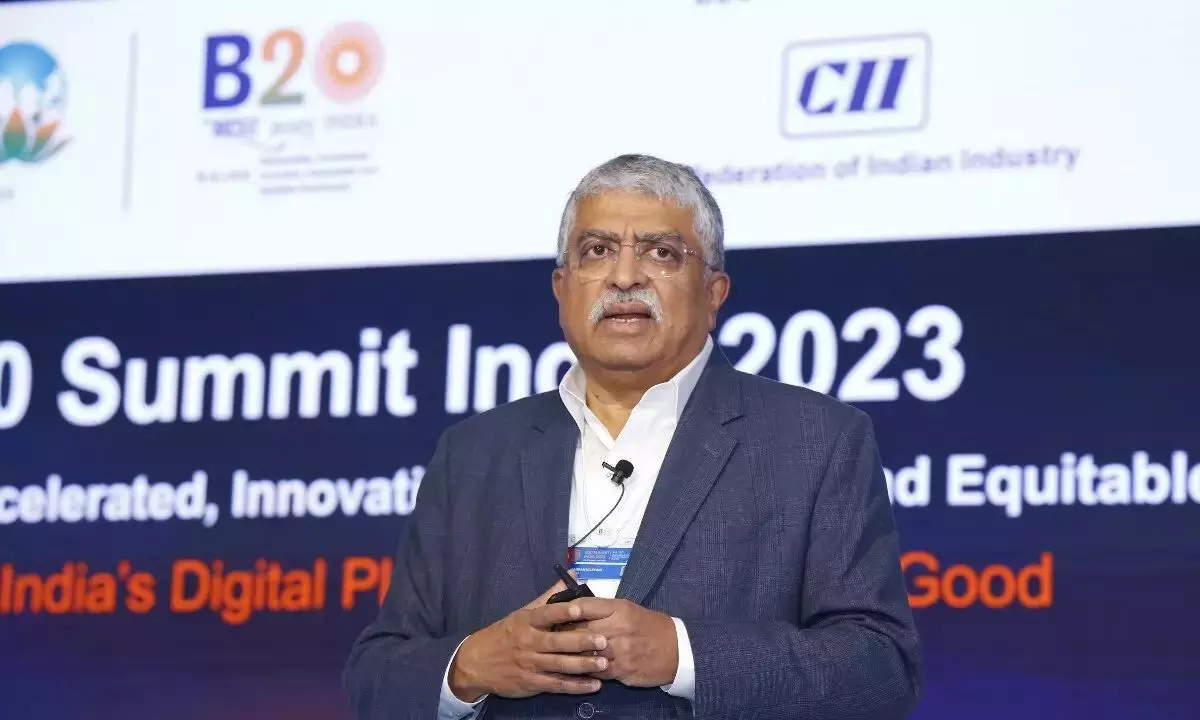DPI can help in climate adaptation, mitigation
India’s DPI is gaining global recognition, says Nandan Nilekani, Chairman and Co-Founder of Infosys and the founding Chairman of UIDAI
image for illustrative purpose

New Delhi: The approach of Digital Public Infrastructure, which has gained global prominence, can also help in the area of climate adaptation and mitigation going forward, Chairman and Co-Founder of Infosys and the founding Chairman of UIDAI, Nandan Nilekani said on Sunday.
Nilekani, speaking at the B20 Summit India organised by CII, further said India has found a “balance” between responsible regulation and innovation due to its participatory model, as he showcased the country’s success story on digital public infrastructure (DPI), which has accelerated inclusion in the country. India’s DPI is gaining global recognition, Nilekani said, noting there is a major move afoot to take this model to 50 countries in five years. Many multilateral agencies and global groups are coming forward and showing interest, and the next fe years will see proliferation and prevalence of digital infrastructure at population-scale around the world. Going forward, the approach of digital public infrastructure can also help in climate adaptation and mitigation, Nilekani said.
“For example, one of the things which will happen in climate adaptation is you want to give anticipatory financing for building more resilient homes, in anticipation of higher sea levels etc. And you can do that using DPI or using ONDC (Open Network for Digital Commerce), another great innovation to create an open network for commerce, we can create a circular economy where things get recycled,” he said. Hence, not only has DPI has helped so far, it will also be useful in the future. The digital public infrastructure issues a challenge for societies, he said, adding that other countries today are fighting the question of how to balance regulation and innovation, something that India has successfully manoeuvred. While the US, a hotbed for innovation, is now looking at approaching regulation, Europe has plenty of regulations, but not enough innovators.

